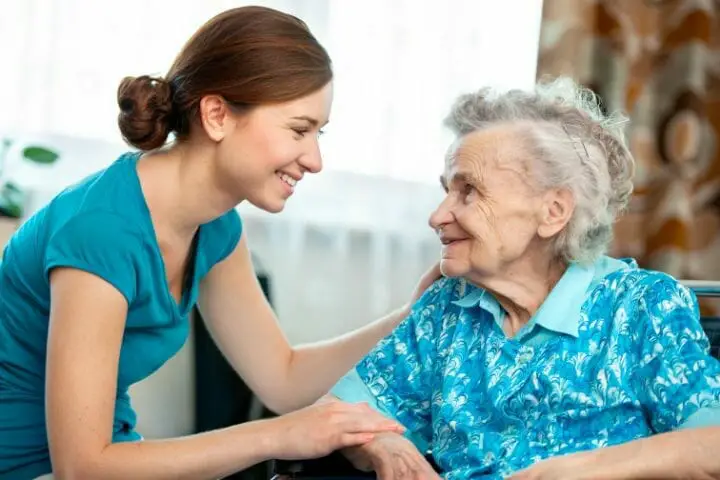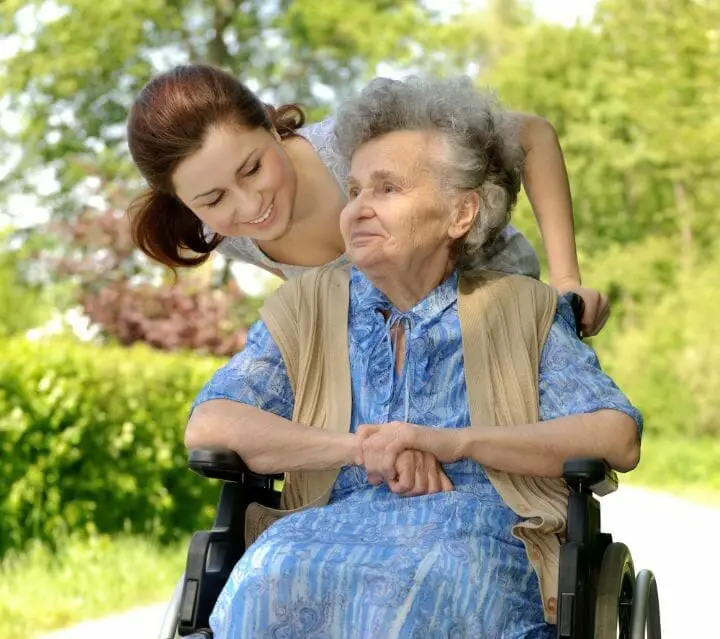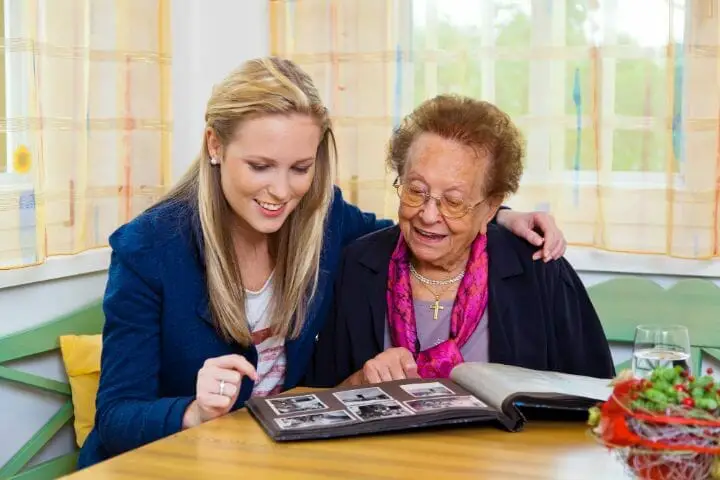This article serves as a quick guide on how you can help your elderly parents when you are not able to stay with them, the steps you need to take, and the relevant resources.
Contents
Caregiving for your elderly parents poses an extra challenge if your loved ones are living far away.
Whether you are living an hour away or are trying to take care of your parents in a different state, stress and guile both tend to build up and start taking an emotional toll. Sometimes you may find yourselves under financial stress as well.
Long-distance caregiving can mean spending an additional $12,000 annually on an average in care-related expenses.
Challenges When Taking Care of Your Elderly Parents from a Distance
Taking care of elderly parents from a distance poses certain kinds of challenges. These may include-
Deciding on a Primary Caregiver
If the family members find it difficult to agree on the individual roles of caregiving, deciding on the primary caregiver can turn out to be a major challenge. If you are a primary caregiver, you will be the one who has to do all the primary research as well as make critical decisions on behalf of your parents, irrespective of how far away you are staying.
Juggling Between Demands from Family and Career
A large proportion of long-distance caregivers are actually sandwich caregivers. They are supporting their own families and also caring for their elderly parents from a distance.
Because of these responsibilities, they end up making significant adjustments to their work so that they can accommodate their caregiving responsibilities. This can lead to missed work days or multiple rearrangements to work schedules.
Handling New Sources of Financial Strain
As a long-distance caregiver, you might be required to incur many out-of-pocket expenses. This can range from expenses on medication to home upkeep as well as those on travel and phone.
Assessment of Caregiving Needs and Finding the Relevant Resources at a Distance
Sometimes your parents are unable or unwilling to communicate their needs. It becomes quite difficult to determine when your parents need you in such cases.
Researching about resources and senior care that are local to your parents can turn out to be one of the biggest challenges. The choices that are available are plentiful and they tend to overwhelm you in terms of number, variety, and locations.
What Can a Long-Distance Caregiver Really Do?
Long-distance caregivers take on different roles in the process. They may help their parents with finances, in terms of money management or bill paying. They can also arrange for in-home care by hiring professional caregivers or home health aides who can help their parents get the needed medical care.
From a distance, they can also locate an assisted living facility or a nursing home that can provide care to their parents. Although they cannot be with their parents every moment, they can still provide the emotional support and the respite care that is occasionally needed.
They can also serve as an information coordinator by researching on health problems or medicines. They can assist their parents in navigating through the maze of newer needs and clarification of insurance benefits and claims for their parents.
In addition, you can inform your friends and family and keep them updated on the condition of your parents. You can also be ready in case of an emergency by creating a plan and keeping the paperwork ready. Once in a while, you can continually keep a check on the living premises of your parents and evaluate it from the perspective that it is safe for their needs.
With time the needs of your family members will change and so will your role as the long-distance caregiver of the family.
So How Do I Start with Taking Care of the Elderly from a Distance?
It takes more than weekly phone calls and occasional visits to provide long-distance care to your elderly. If you want to make an impact, you need to lay the appropriate groundwork to be an effective and informed caregiver.
We list some of the first steps that you can take when starting to become a long-distance caregiver to your elderly parents.
Gather the Relevant Information Related to Their Healthcare
In order to protect the health of your aging parents, you need to understand their medical history. As a first step, compile a document that enlists all the current and past health conditions of your parents. This should include the medication regimes that they have been under, any allergies that a first responder should be aware of, a contact list of all their medical providers, and detailed information on their insurance coverage. All these documents together would be compiled together into a personal health record for your parents.
Compiling this information not only helps you as a caregiver, but it also assists the doctors in providing the best care to the patient.
If the doctors do not have a complete picture of the patient’s health, there are chances that they might overlook any symptoms or may prescribe medicines that interact with other drugs that the patient might already be taking.
Collecting this information that your parents can carry with them to their medical appointments ensures that the healthcare providers are always informed about their medical situation.
Read up and Get More Information on Medicare
You probably might have a general idea of how medicare works. But you might not be aware of the different types of Medicare coverages that are available and the fact that drugs covered as well as the services under various Medicare plans can get modified with every year.
As a long-distance caregiver, it becomes important for you to stay updated about any changes happening with Medicare. If you are unaware of these changes, your parents could lose their medical coverage for a service or drug that they might need to stay healthy.
They can end up paying out-of-pocket for their essential health care requirements. Always stay updated by doing your research and keeping a track of changes before mid-October every year when the Annual Election Period opens up.
Establish Communication Channels
In order to keep a tab on your parent’s well-being, it is essential to have regular communication with them. However, sometimes there might be technological barriers in these situations. For instance, you might end up playing phone tag more often than not, in case your parents only possess a landline phone.
Many elderly are quite hesitant to adopt new technologies, but convincing your parents to use a mobile phone is definitely worth the effort. Mobile phones allow you to get in touch with your parents irrespective of where they are. They also possess video chat capabilities so that you can visually assess your parents’ well-being rather than depending solely on their voice.
If your family member lives in a nursing home, consider getting a private phone line installed in their room. Provide a list of speed-dial numbers on their device that can instantly connect them to their doctor or immediate family member.
If you feel that your parents might be overwhelmed by a traditional smartphone, you can look at special devices intended for seniors. These devices are designed to be used easily by the seniors so that they witness less of a learning curve while staying connected with their loved ones.
You may also like Best Elderly Care Companies
Hire a Local Care Team
Considering that you cannot be physically present with your parents all the time, you would rely on local carers to give your aging parents the hands-on assistance that they would require.
It is a good idea not to leave this process of choosing a local carer for your parents. You would obviously have their confirmation while hiring a caregiver depending on their comfort level with the person.
However, leaving the process to them may lead to situations where they might be abused or taken advantage of by an unscrupulous individual.
Hiring help for your parents takes care of the fact that their pride does not get in the way of their safety. This also allows you to do background checks and interviews of the local caregivers as a part of the screening process.
In addition to the professional caregiving services, you might want to consider getting an extra hand for your parents in doing the routine chores. Services like grocery delivery, housekeeping, and landscaping are affordable and can make your parents’ lives much easier.
In addition to the above steps, you should try to visit your elderly parents as often as you can. While visiting them, not only would you notice things that need to be done, and that can be taken care of from a short distance, but you can also give the primary caregiver a short time to take a break. You should ask the primary caregiver and the care recipient in ways that you can be most helpful.
Most of us do not have many caregiver skills. You can read about caregiving skills and can also take basic training for the same. Some local chapters of the American Red Cross, as well as some nonprofit organizations that are focused on caregiving, offer courses. Sometimes Medicare and Medicaid may pay for these trainings.
Since I’d Be Staying at a Distance from My Parents, How Do I Make the Most Out of My Visits to Them?
Before you make a visit to your elderly parents, you should talk to the care recipient and find out what would they like to do during the visit. In addition to this, check with the primary caregiver to learn what they need.
In case they require you to handle some of the caregiving responsibilities during your visit, this will help you in setting clear and realistic goals for your visit. You can thus decide on the priorities and leave the other tasks to another of your visits.
In addition to planning this, do remember that the primary purpose of your visit is also to spend time with your parents. Try to take out time from the daily schedule to do things that are not related to that of being a caregiver.
This may include recreational activities like watching a movie, taking a drive, or playing board games with your parents. Finding out time to do simpler things not only is fun and relaxing, but it also helps in building beautiful family memories. Try to keep the outside distractions away from your schedule until you are back home.
You may also like Games to Play with Elderly People
How Do I Stay Connected with My Aging Parents from a Distance?
In order to stay connected with your aging parents while you are not able to stay close to them, try finding people who live close to your loved one and can provide a realistic view of their situation.
This can be your other parent or a neighbor. A social worker can also provide you with updates and help you in making decisions.
Many families prefer to schedule conference calls that include the doctors, assisted living facility team, or nursing home staff so that several relatives can come into a single conversation and get the same updated information about the health and the progress of the care recipient.
You can include regular phone conversations as well as emails sent out to email contact lists that keep everyone updated on your parents’ needs.
We have already talked about giving your parents a cellphone or a special device intended for seniors.
Where Can I Find More Information about the Local Resources for an Aging Parent?
The first place that you can check is the internet. Searching online is a good way to collect resources. In addition to this, you can check resources like Eldercare Locator, National Institute on Aging website, Family Care Navigator, or even the website of your state government. You might also want to check with the local senior centers.
You may also like Caring for Elderly Parents Who Were Abusive
Conclusion
Taking care of your elderly parents from a distance is a challenging task but with the correct process set in place and a helping hand from multiple resources, this challenge can be easily overcome.
Always ensure that you spend adequate time with your parents on your occasional visits and keep monitoring the situation on a regular basis. There are assistance services available in case you find it difficult to take care of some aspects, be it your parent’s health or the condition of your home.







